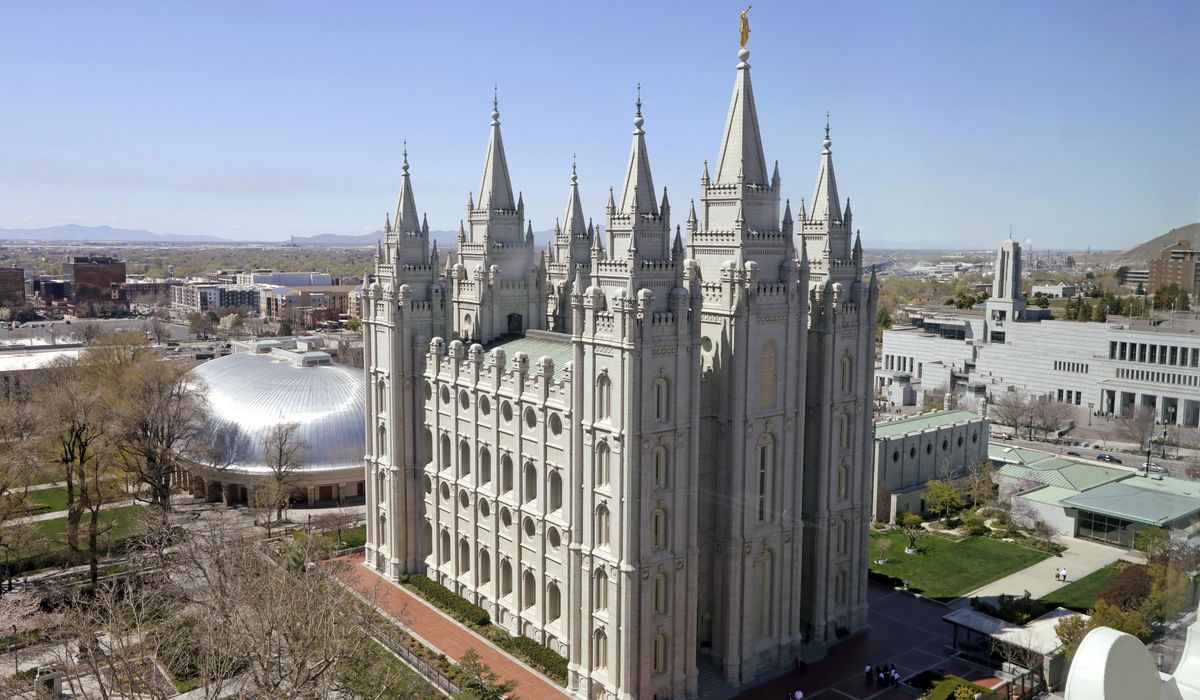


A federal appeals court has rejected a prominent ex-member’s effort to claw back millions of dollars in tithes from the Church of Jesus Christ of Latter-day Saints over its funding of commercial ventures.
The 9th U.S. Circuit Court of Appeals ruled unanimously against the fraud claim brought by James Huntsman, the brother of former Utah Gov. Jon Huntsman, who accused the church of misrepresenting the source of funding for the church-owned City Creek Center.
Mr. Huntsman, who left the church in 2020, sought a refund of his $5 million in donations, saying church leaders insisted no tithes would be used to finance the $1.4 billion retail and residential project in downtown Salt Lake City, but the court disagreed.
“No reasonable juror could conclude that the Church misrepresented the source of funds for the City Creek project,” reads the opinion by Judge Michelle Friedman. “Although the Church stated that no tithing funds would be used to fund City Creek, it also clarified that earnings on invested reserve funds would be used.”
Mr. Huntsman also challenged a $600 million transfer to bail out Beneficial Life. The court found the record “contains no representations by the Church about Beneficial Life in particular.”
The decision marked the second time the case filed in 2021 has been dismissed.
A federal judge granted summary judgment to the church, but a three-judge panel of the appeals court reinstated the complaint in 2023. The full court vacated that decision last year in agreeing to hear the case en banc.
“The Church had long explained that the sources of the reserve funds include tithing funds,” Judge Friedland said in the decision. “Huntsman has not presented evidence that the Church did anything other than what it said it would do.”
The majority opinion also found that the church autonomy doctrine “had no bearing on this case because nothing in the court’s analysis of Huntsman’s fraud claims delved into matters of church doctrine or policy.”
On that score, several judges disagreed. Two concurring opinions argued that the church autonomy doctrine was relevant to the case’s outcome.
“The majority is correct that there was no fraudulent misrepresentation even on the terms of plaintiff’s own allegations,” Judge Daniel Bress said in a concurrence joined by three other judges. “But it would have done well for the en banc court to recognize the obvious: there is no way in which the plaintiff here could prevail without running headlong into basic First Amendment prohibitions on courts resolving ecclesiastical disputes.”
In a separate concurrence, Judge Patrick Bumatay said the church-autonomy question should have been the “threshold” determination.
“Simply put, the church autonomy doctrine bars federal courts from resolving matters of faith, doctrine, and church governance,” Judge Bumatay said. “So we can’t just sidestep the doctrine and jump straight to the merits.”
Mr. Huntsman, who cited a church teaching document saying that tithes would be used for “the work of the Lord,” said he has not yet decided whether to appeal the ruling to the U.S. Supreme Court
“Still assessing,” he told the Salt Lake Tribune in a text.
• Valerie Richardson can be reached at vrichardson@washingtontimes.com.
